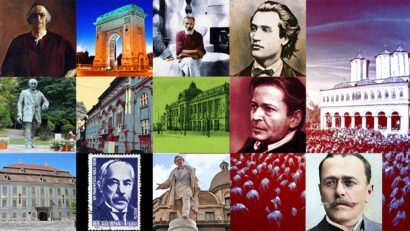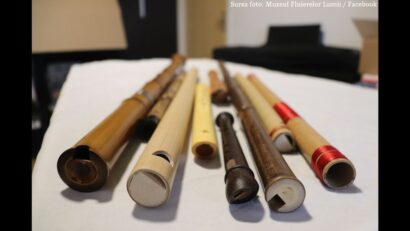The Cassasovici Family
In the early 19th century, the Romanian Principalities underwent a modernization process, which paved the way for the emergence of new social classes, such as the bourgeoisie. Alongside the traditional boyars’ class in the Principalities, the bourgeoisie made its own contribution to the country’s subsequent progress.

Ștefan Baciu, 14.06.2014, 14:46
In the early 19th century, the Romanian Principalities underwent a modernization process, which paved the way for the emergence of new social classes, such as the bourgeoisie. Alongside the traditional boyars’ class in the Principalities, the bourgeoisie made its own contribution to the country’s subsequent progress.
One of the bourgeois families which, for several generations, would climb the social ladder from the bottom all the way up to the top was the Cassasovici family. The history of this family has recently been outlined in a volume entitled “The Cassasovici Family, 1810-1976. Five generations in Romania.” The volume was brought out by the Vremea Publishers in Bucharest. It is a family saga, written by one of the descendants, Dan Cassasovici, who used the memoirs of his great-grandfather, grandfather and father. Speaking about this volume, here is the historian Mihai Dimitrie Sturdza, a friend of the family.
Mihai Dimitrie Sturdza: ”Dan Cassasovici provides a very honest account of his early ancestors, who came to Romania as grocers, merchants, owners of big stores that got bigger and bigger. The family includes a participant in the 1877 Independence War, a string of industry creators who got rich and climbed one step further on the social ladder. The Cassasovici family missed the chance to become boyars because, when its members began to rise socially, a new law of the United Romanian Principalities did away with the boyar ranks, which had been the target of those who were making money. The Cassasovici family, however, were too late for that. In time, however, the so-called high-class in Romanian society was created through the merging of several families. All of them were taken by the communist secret police, the Securitate, for investigations or straight to prison, where many of them lost their lives. I met Dan Cassasovici in the 1950s or 1960s, when I also met his grandfather, Corneliu, in the Ghencea selection camp. Cornel Cassasovici was well over 70, and I, at seventeen, was one of the youngest convicts.”
Communism brutally interrupted the natural and well-deserved rise of the Cassasovici family, which, after five generations in Romania, saw itself deprived of its possessions. Humiliated, harassed by the authorities and thrown in jail, its members never lost their dignity, and more importantly, did not forget their past.
Dan Cassasovici: ”In 1810 five children crossed the Danube with their mother, Elenca. They were three brothers, Dumitru, Hristache and Ivanciu, and two sisters, Stanca and Penca. Ioan and Dumitru became merchants, and they took their horses as far as nearby Vienna, to put them up for sale. Cassasovici opened a grocery in Alexandria and had nine children. Of those, only one wanted to go to school. He was my great-grandfather, Haralambie, a curios man, who wanted to know more than was going on in his home town. But there was a problem: his brothers did not agree to his parents giving him money to go to school. So he joined the army, and his military career went hand in hand with the medical one. He became a medical doctor and married a girl from Alexandria’s merchant families. They had two children, Clementa, who married into the Noica family and was philosopher Constantin Noica’s mother, and Corneliu. Both went to top schools. Corneliu, my grandfather, studied in Dresden and became an engineer. He dreamed of starting his own company, and he eventually did so. I still wonder when he found time to sleep. Aside from founding a factory, he is considered the founder of Romania’s higher education in textile engineering. He set up the school, trained the teaching staff, wrote the courses. He put in a tremendous amount of work. In turn, he had two children, a daughter Adina Juvara and a son, Mircea, who was my father, and who studied engineering in Dresden as well.“
Unfortunately, communism did not allow Mircea, Dan Cassasovici’s father, to continue what his ancestors had begun. The history of modern Romania is rich in success stories such as that of the Cassasovici family. Yet these stories remained unknown, because the communist regime wanted to undermine their importance. It is only from now on that such destinies can be discovered.





























